The following contains spoilers for Severance S1E7, “Defiant Jazz” (written by Helen Leigh and directed by Ben Stiller)
As the questions around how the severance procedure works and what Lumon is doing become more sprawling, I find myself somewhat disappointed that the questions of personal identity at the heart of Severance aren’t being better explored. Is innie Mark (Adam Scott) the same person as outie Mark, or not, for example? And how should our ethical judgments cut in, either way?
It is true that the innie was brought into this world without his consent, as Regabhi (Karen Aldridge) points out, but the same could be said for all of us—the lack of freedom that defines his existence would seem to be the more relevant thing. If he is a separate person, then this is basically slavery. So it’s kind of odd to see Mark in S1E7 playing it like an excuse. The thought that it’s still him should make it more ethical, not less so.
Of course, then we have to face the question of exploiting oneself and whether that is possible. I think it is, but since I don’t think the innie and outie are the same person, philosophically speaking (they share a body and a name but not memories or a continuity of consciousness), I am not inclined to pursue the thought much further here. Instead I am inclined to suggest that reintegration sounds a lot like having someone else’s memories foisted upon you, which would be pretty terrible. But I guess I will admit there is more of a connection between innie and outie than that.
Unreflective common sense suggests they are the same person, but reflectively this would require some kind of essential substratum that endures under the surface for both of them. How close is Severance to requiring us to believe in souls that bind innie and outie together for its plot to work?
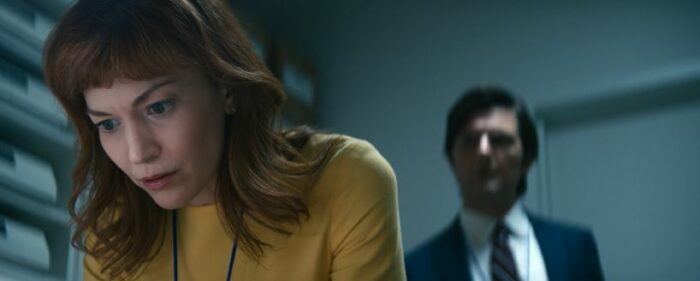
The reveal with which Severance S1E7 closes—that Mark’s deceased wife would appear to be Ms. Casey (Dichen Lachman), who is very much alive—brings Severance very close to Dollhouse territory, which is OK insofar as I think Dollhouse was a very good show that was cancelled too soon, but it does threaten to undermine the novelty of this story we’ve been watching unfold for the past six weeks.
At the same time, the wellness session wherein Mark made a tree out of clay takes on a deeper resonance now, as it was clear his outie’s sobbing by the real-life tree related to his dead wife, and now it would seem that his innie may have been triggered towards this vague recollection by the image (in the flesh) of the same. But if Ms. Casey is Gemma, how did this come about? It certainly bolsters my theory that she’s more a subject in the experiment than an observer.
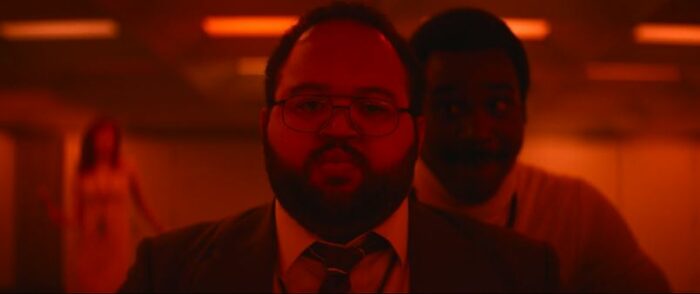
Dylan (Zach Cherry) tells the whole MDR team about how Milchick (Tramell Tillman) woke him up at home (in a procedure he calls Overtime Contingency, or OTC) after he disrupts their five-minute music experience by attacking Milchick, biting him and breaking the skin. So now the MDR team is set on activating themselves outside of work, as they have been conveniently provided with Graner’s (Michael Cumpsty) security card after Regabhi killed him at the beginning of “Defiant Jazz.”
That strikes me as a little too convenient, actually. What if all of this is a game and a part of Lumon’s plan for reasons unknown? (I would be assuming Graner isn’t actually dead in this theory, and that Cobel is a part of the experiment/game, not one of the people running it. Too far fetched?)
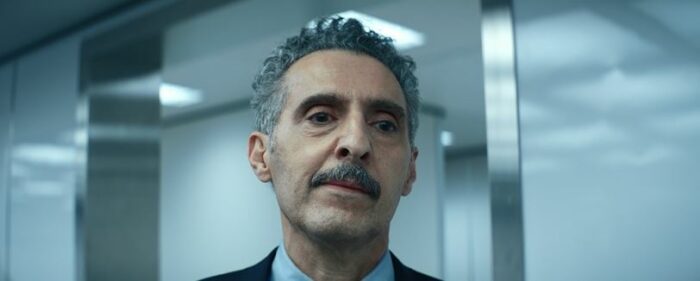
The breaking point for Irv (John Turturro) is Burt’s sudden retirement, and it is striking how Burt had given no indication that this was impending, though at the same time it’s striking that the innie version of him wouldn’t have known anything about it. Christopher Walken is great as he delivers his goodbye monologue on video to the team he’s never met, who he’s sure will stay with him in some deep but inaccessible part of him, and so on. It reminds me of Pulp Fiction, of course, but the humor here in “Defiant Jazz” lies more in how he seems completely sincere but keeps rambling on in ways that undermine the sentiment.
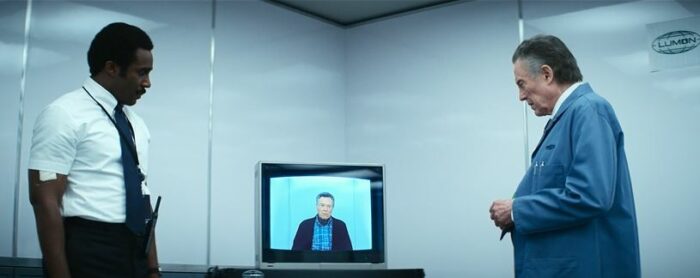
Regardless, one has to wonder where all of this is going. We see Mrs. Selvig (Patricia Arquette) at some length in S1E7, and when she is giving nursing advice to Devon (Jen Tullock), or having a laugh with her as she tells a story about breast milk sprayed all over an airport bathroom, she too seems completely sincere.
At work, she insists on meeting the Board in person to present her data on reintegration, and they agree. But there is an implication here that she has never met them in person before, nor perhaps spoken with them before without an intermediary. This should lead us to question how much power she actually has.
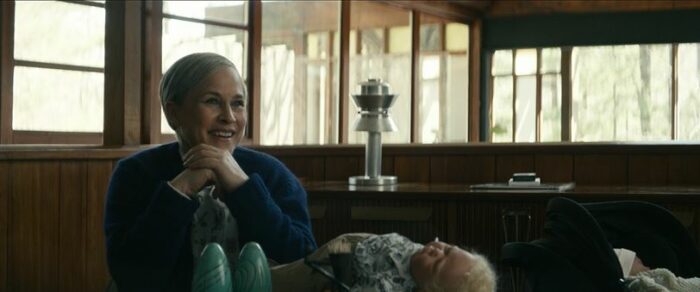
And then there is the wrinkle of the medical bracelet we saw briefly last week that suggests her real name is Charlotte Cobel. Or perhaps Charlotte was her mother? Harmony has this bracelet after all, so it would be weird if she didn’t know who Charlotte was, and if that’s a birthdate on the bracelet then Charlotte would be in her 70s…that is, if Severance is set in 2022 in something like a parallel universe…
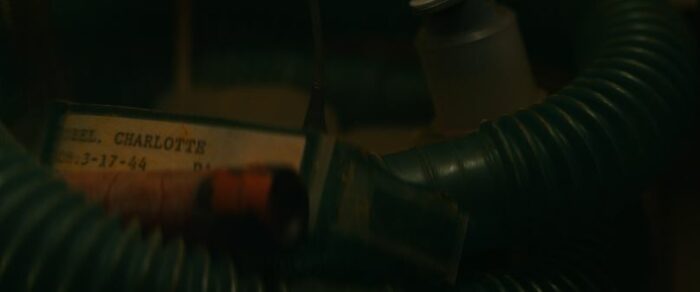
There are a lot of ifs that linger as we enter the final two episodes of the season, and though it does appear that the show will have a Season 2, Season 1 still seems structured to provide us with a relative degree of closure. MDR is on the cusp of activating OTC on themselves, Harmony is supposed to meet the Board at the Eagan gala (which it feels like it would be significant to see for other reasons as well), etc.
But then Severance S1E7 opens another huge question with its closing scene. If Mark’s wife and Ms. Casey are one and the same (physically, at least), why does everyone think his wife is dead? Or did we jump to that conclusion without it ever being made explicit in the show? Is it perhaps possible that everyone, including Mark, knows that she’s become permanently severed?
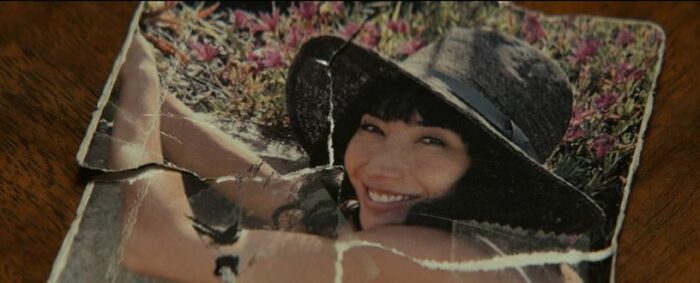
I don’t think so, but I also can’t help but think back to the song June’s band played about Lumon, which centered on them taking people away. So again, I wonder what it is that the world at large thinks that Lumon does.
Of course, I also wonder what Lumon actually does. Milchick activated innie Dylan at home in order to find out what he did with the idiographic card he swiped from O&D, which was clearly risky to do and implies the card is very important. But then S1E7 sees him giving it to Burt, and while I thought that scene hinted at a nefarious plan coming to a head, it later seems they were perhaps just talking about Burt’s retirement.
I think my first read of their conversation might have been correct, though, and there is more to Burt than meets the eye. We still don’t know what O&D really does. Does he? I think he might.
I can no longer tell what’s wild speculation and what is a reasonable hypothesis when it comes to this show.
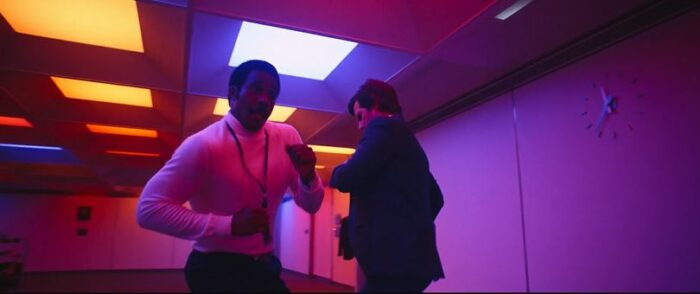
See you next week.


On the ethical question, Mark seems to be trying to live some portion of his life without the deep pain of having lost his wife. I think to him, his innie and his outie are both him. Or at least the outie Mark thinks so. If innie Mark can indeed feel some residual of that pain bubbling up from their not quite severed subconscious, he may understand that he’s being spared that pain and find comfort / motivation in it. At least until he starts getting led astray by the others, both inside and outside.
Dylan is a different story. His outie has at least a kid, maybe a full family. Although only his son was there and had to be distracted by counting, so maybe Dylan is a single father and suffering from a loss similar to Mark. Regardless, he’s checking out every day for 8 hours *on his son”, not being there for his kid. Can any of us find that morally acceptable?
Hm, yeah, similar thing with Petey and his daughter June, whose band sings the anti-Lumon song and so on. I don’t know, though, how different is it from just a normal work experience where you aren’t available to your family for eight hours a day?